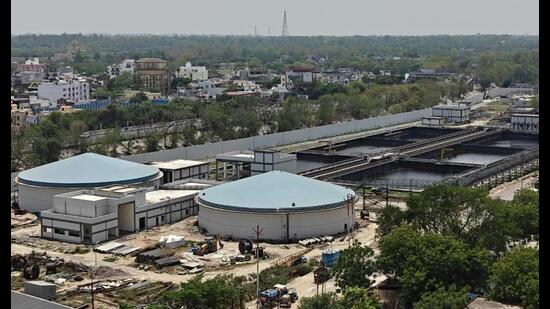Soon, STPs across UP to be monitored every day for output
The move follows concerns over reports of high fecal coliform levels in river water during the Mahakumbh.The STP cell, likely to be formed in a month, will collect data of these plants and monitor their performance daily, thereby promoting swift repair in case of any malfunction
LUCKNOW Soon, the output of sewage treatment plants (STPs) across UP will be monitored every day by a cell under the Uttar Pradesh Pollution Control Board (UPPCB). This follows concerns over reports of high fecal coliform levels in river water during the Mahakumbh that saw over 66 crore devotees taking a holy dip over a period of 45 days.

The state has 152 STPs with a total capacity of 4651 MLD, monitored by different agencies at local/district leveland. As of now, the reports about their efficiency to remove pollutants from water is updated weekly or once/twice a week.
However, the STP cell, likely to be formed in a month, will collect data of these plants and monitor their performance daily, thereby promoting swift repair in case of any malfunction. It will comprise UPPCB officials, technical experts and others.
“In case any STP gets defunct or its capacity gets reduced due to technical snag, the information will come as alert to the cell and action will be initiated the same day,” said a UPPCB official.
Currently, daily accountability is missing as defunct STPs are managed at the local level with no state level monitoring in place. “But this will not be the case anymore. Each STP will be monitored every day, and a report will be submitted, stating reduction in its capacity, if any,” said the officer.
Chief minister Yogi Adityanath has given the nod to the formation of the STP cell. Chairing a recent review meeting of the UPPCB, he had told officials, “The UPPCB will have a separate cell for solid, liquid, bio-medical and hazardous waste management.”
During Mahakumbh 2025 in Prayagraj, concerns were raised over untreated sewage discharge into the Ganga and Yamuna. While measures such as temporary STPs and use of advanced oxidation techniques were brought in to address the issue, some STPs could not maintain the required water quality as per standards.






